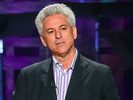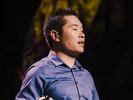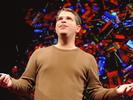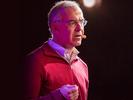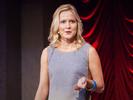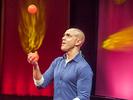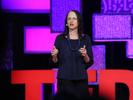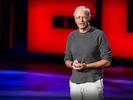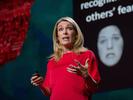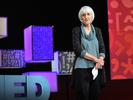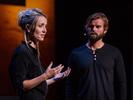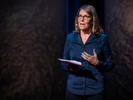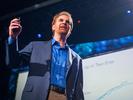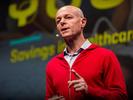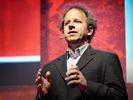NPR/TED Staff appears in the following:
Michael Specter: What Happens When We Ignore Scientific Consensus?
Friday, June 23, 2017
Michael Specter explores why some deny scientific evidence — such as the safety of vaccines and GMOs, or climate change. He says denying can provide a sense of control in an unsure world.
Carrie Poppy: Can Science Reveal The Truth Behind Ghost Stories?
Friday, June 23, 2017
After visiting a bookstore, Carrie Poppy started feeling odd: pressure on her chest and auditory hallucinations. She thought it was a spirit – until she found another explanation for her symptoms.
Deborah Lipstadt: How Do You Stand Up To A Holocaust Denier?
Friday, June 23, 2017
After publishing the book Denying the Holocaust, Deborah Lipstadt was sued for libel in the UK by Holocaust denier David Irving. Rather than ignore the case, she chose to fight it — and won.
Jia Jiang: Can You Train Yourself To Accept Rejection?
Friday, June 16, 2017
For 100 days, Jia Jiang did a bunch of random things - asking a stranger for $100, requesting a burger refill at a restaurant, asking for a haircut at PetSmart - all to conquer his fear of rejection.
Matt Cutts: Can You Change For The Better In Just 30 Days?
Friday, June 16, 2017
Every 30 days, Matt Cutts gives himself a new challenge: writing a novel, giving up sugar, even chewing slower. He says 30 days is enough time to develop a habit or just make life more interesting.
David Brooks: Can You Become A Better Person By Confronting Your Worst Self?
Friday, June 16, 2017
New York Times columnist David Brooks says success alone isn't enough to build character or achieve happiness. He says those things come from struggling for something bigger than yourself.
Emily Balcetis: If You Focus On The Finish Line, Will You Get There Faster?
Friday, June 16, 2017
To get better at anything, you need motivation. But conjuring it up can be tough. Psychologist Emily Balcetis says the key to better motivation is simple — just focus on the finish line.
Andy Puddicombe: Why Should We Meditate?
Friday, June 16, 2017
After ten years as a Buddhist monk, Andy Puddicombe wanted to help other people understand the benefits of meditation. He says just ten minutes a day can give you peace of mind.
Larissa MacFarquhar: How Far Would You Go To Help Others?
Friday, May 26, 2017
Larissa MacFarquhar writes about extreme altruists, people who make great sacrifices to help others. She says most of us aren't prepared or willing to do that — which is why we don't give more.
Peter Singer: How Can We Be More Effective Altruists?
Friday, May 26, 2017
Philosopher Peter Singer's work focuses on "effective altruism" — how to do the most good to make the world a better place. He argues effective giving involves balancing empathy with reason.
Cheryl Steed: Can Altruism Be Learned?
Friday, May 26, 2017
At the prison where Cheryl Steed works, certain inmates are chosen to be caregivers for elderly inmates. The program has made her wonder — can altruism be learned?
Abigail Marsh: Are We Wired To Be Altruistic?
Friday, May 26, 2017
When Abigail Marsh was 19, a complete stranger risked his life to save her from a car accident. Today, she studies what motivates us to help others — and why some of us are "extraordinary" altruists.
Sue Klebold: When Your Son Does The Unthinkable, Can You Forgive Him And Yourself?
Friday, May 12, 2017
Sue Klebold's son Dylan was one of the two shooters at Columbine High School. Nearly 20 years later, she talks about her struggle to understand his actions, and to find forgiveness.
Thordis Elva And Tom Stranger: How Do You Move Forward After Sexual Violence?
Friday, May 12, 2017
Tom Stranger raped Thordis Elva when they were dating in high school. Years later, they started a painful and painstaking dialogue about accountability and reconciliation.
Elizabeth Lesser: Why Is It So Hard To Ask For — And Offer — Forgiveness?
Friday, May 12, 2017
Before donating bone marrow to her sister — Elizabeth Lesser and her sister undertook a process of seeking forgiveness from each other. She says forgiveness is hard but necessary for our well-being.
Maurice Conti: Can Machines Think And Feel For Themselves?
Friday, April 21, 2017
Futurist Maurice Conti says we've entered a new era where machines and humans partner to do what neither can do alone. He calls it the "Augmented Age."
Erik Brynjolfsson: In A Race With Machines, Can We Keep Up?
Friday, April 21, 2017
MIT Professor Erik Brynjolfsson sees a bright future where machines serve as powerful tools and partners. But he says we can only shape this future if we keep up with the pace of innovation.
Marco Annunziata: What Will Human-Machine Collaboration Mean For Our Jobs?
Friday, April 21, 2017
GE's Chief Economist Marco Annunziata is optimistic about "the marriage of minds and machines" — provided we manage it the right way.
Jeremy Howard: Will Artificial Intelligence Be The Last Human Invention?
Friday, April 21, 2017
Jeremy Howard has studied machine learning for 25 years. He says artificial intelligence can help achieve amazing things. But he warns the impact on jobs may cause a great deal of social instability.
Esra'a: Would You Speak Up ... Even If It's Dangerous?
Friday, April 07, 2017
Esra'a is an activist who lives in Bahrain and identifies as queer — which puts her at great risk. Despite that, she's speaking out to build community and empathy within the LGBTQ community.
